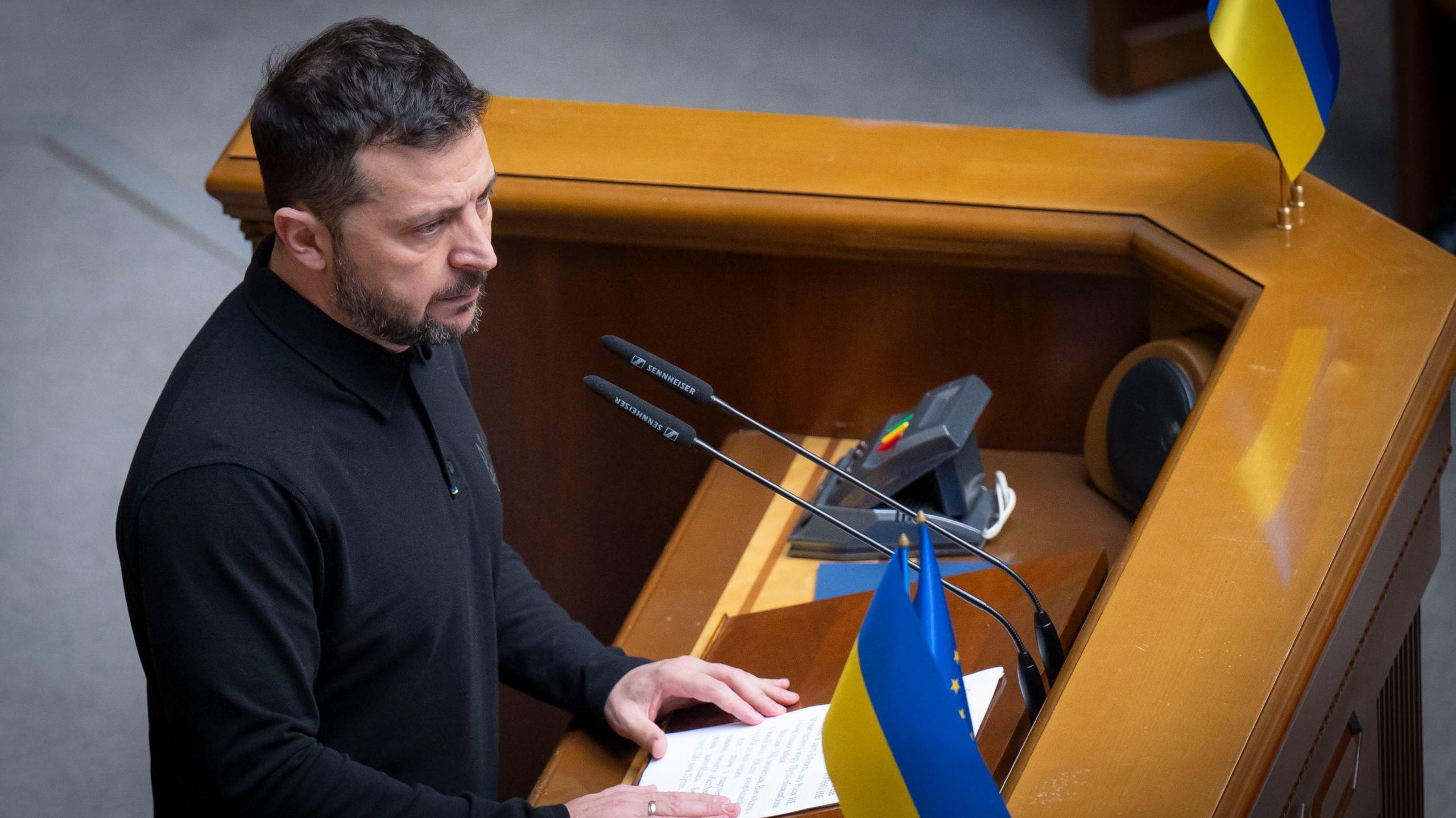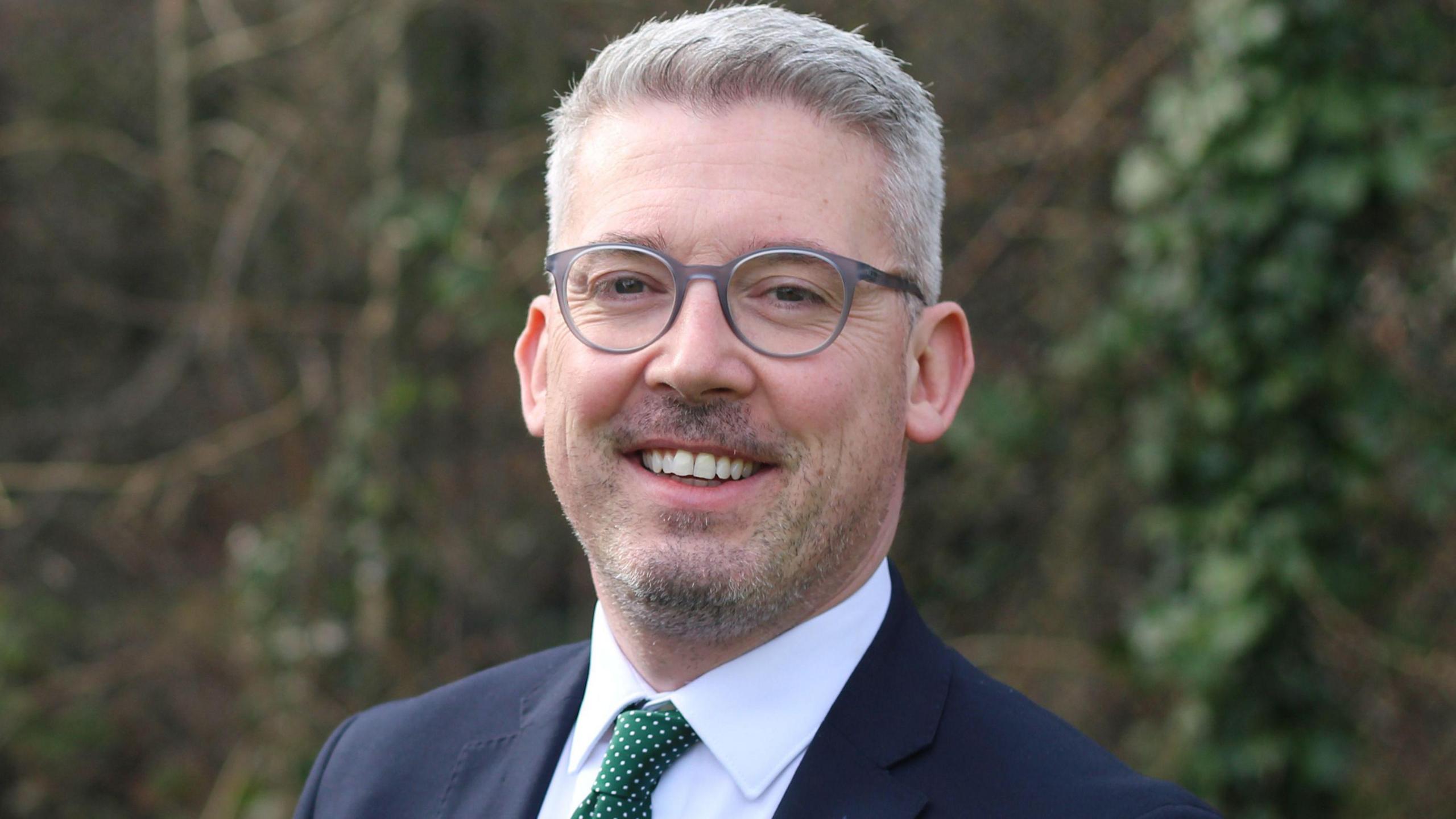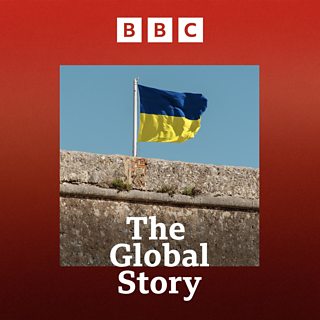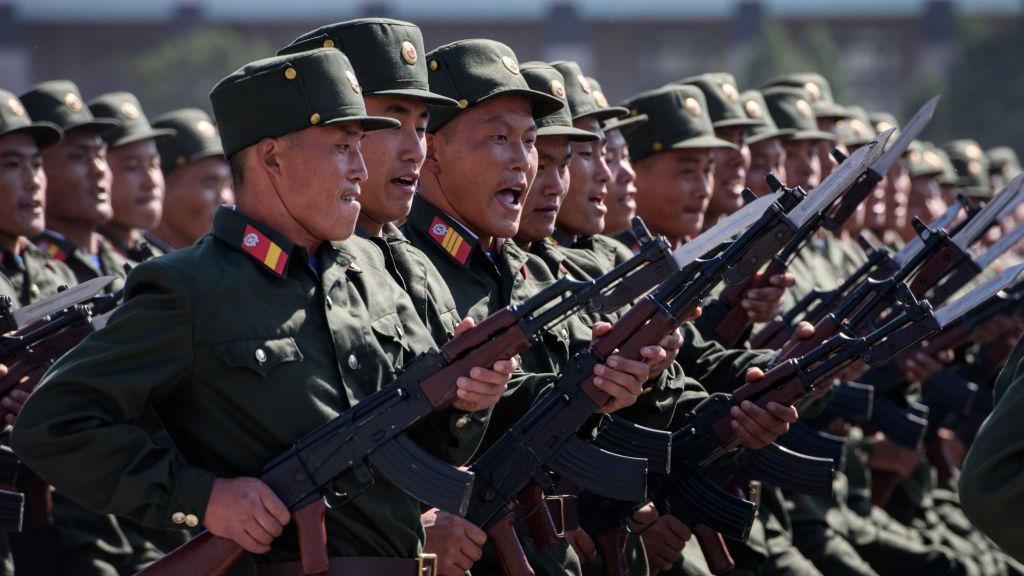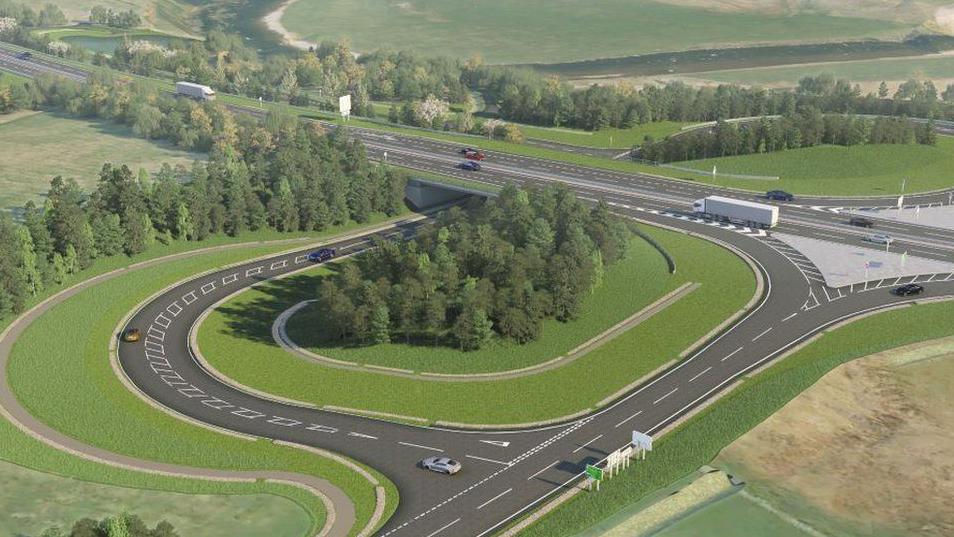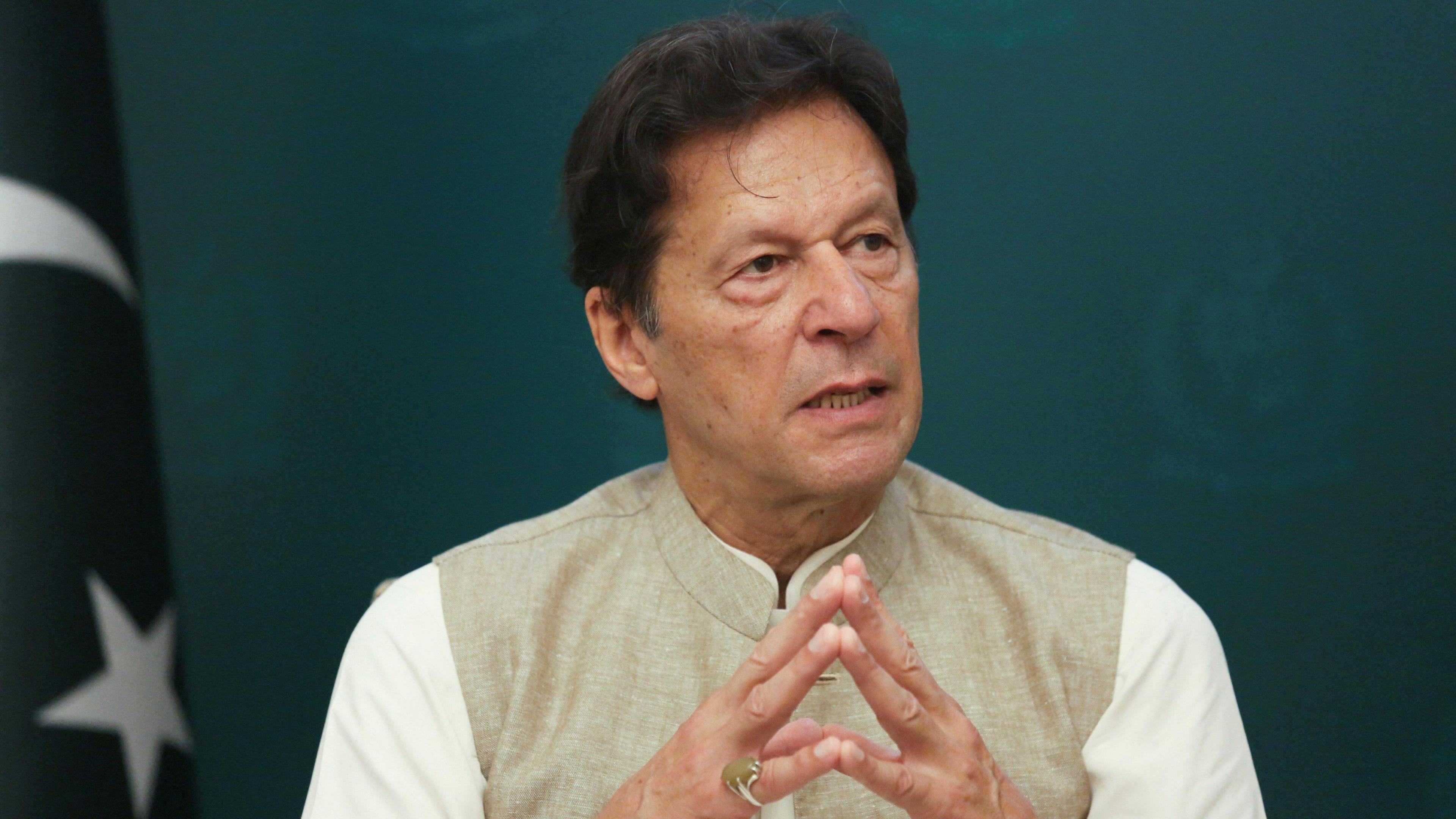Ukrainian President Volodymyr Zelensky has presented MPs with a long-awaited “victory plan” that aims to strengthen his country’s position enough to end the war with Russia.
Zelensky told parliament in Kyiv that the plan could finish the war – which began with Russia’s full-scale invasion of Ukraine in February 2022 – by next year.
Key elements include a formal invitation to join Nato, the lifting by allies of restrictions on long-range strikes on Russia, a refusal to trade Ukraine’s territories and sovereignty, and the continuation of the incursion into the Kursk region of Russia.
The Kremlin dismissed the plan with a spokesman saying Kyiv needed to “sober up”.
Addressing MPs, Zelensky also criticised China, Iran and North Korea for their backing of Russia, and described them as a “coalition of criminals”.
He said he would present the victory plan at an EU summit on Thursday.
“We are at war with Russia on the battlefield, in international relations, in the economy, in the information sphere, and in people’s hearts,” Zelensky told parliament.
The plan outlined by Zelensky consists of five key points:
-
Inviting Ukraine to join Nato
-
The strengthening of Ukrainian defence against Russian forces, including getting permission from allies to use their long-range weapons on Russian territory, and the continuation of Ukraine’s military operations on Russian territory to avoid creation of the “buffer zones” in Ukraine
-
Containment of Russia via a non-nuclear strategic deterrent package deployed on Ukrainian soil
-
Joint protection by the US and the EU of Ukraine’s critical natural resources and joint use of their economic potential
-
For the post-war period only: replacing some US troops stationed across Europe with Ukrainian troops
Three “addendums” remain secret and will only be shared with Ukraine’s partners, Zelensky said.
The plan was presented to US President Joe Biden, as well as presidential candidates Kamala Harris and Donald Trump, back in September.
Key allies such as Britain, France, Italy and Germany have also reportedly been shown the plan.
However Zelensky’s conditions for peace are increasingly at odds with the situation which surrounds him.
In front of MPs he acknowledged the growing fatigue in his country. His own tiredness was etched across his face as he said that “victory has become for some an uncomfortable word and it’s not easy to achieve.”
National morale has gradually been crumbling under the weight of a mounting death toll, a controversial mobilisation law and never-ending Russian assaults on Ukrainian territory.
It’s increasingly thought any peace deal would have to involve Ukraine conceding territory in exchange for security guarantees.
However, there was no hint of a compromise to bring the end of the war closer. Instead, Zelensky doubled down on wanting to force Russia to negotiate and to not cede Ukraine’s territory, through the strengthening of his own military.
He also claimed his extensive plan could be implemented with the agreement of his allies, and not Russia.
In public, Zelensky evidently still sees this war as existential, and warned of Russian President Vladimir Putin continuing to strengthen his position.
He also seemed to frame his vision as an investment opportunity for Western allies in terms of natural resources and economic potential.
The Ukrainian president wants his exhausted troops to keep fighting.
But with his army so reliant on Western aid, his “victory plan” will need the approval of the next US president.
Immediately after Zelensky finished speaking, the Kremlin rubbished his “ephemeral peace plan,” saying Kyiv needed to “sober up”.
The only way the war would end was Ukraine to “realise the futility of the policy it is pursuing,” Kremlin spokesman Dmitry Peskov said.

